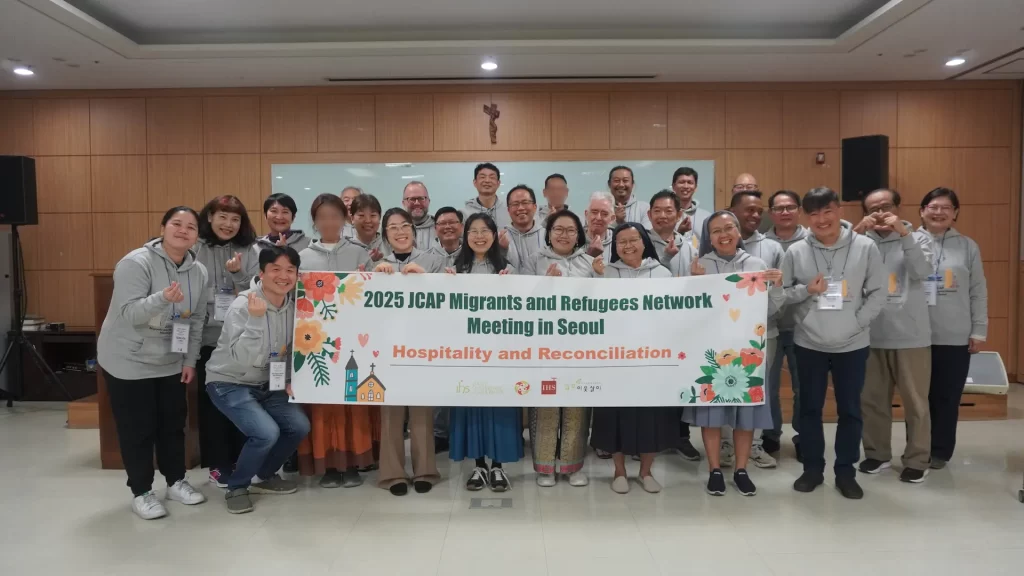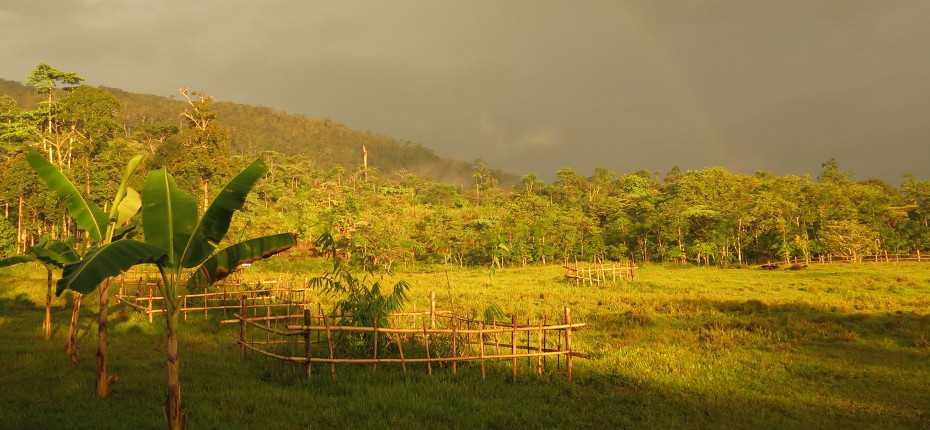 It meant three days with no Internet connection or cellular phone signal, but 35 people from 10 countries within the Jesuit Conference Asia Pacific (JCAP) happily gathered in a rural part of the Philippines for an ecology workshop in early June. They worked together, shared experiences, and developed 60 joint actions for strengthening networks, collaboration and communication as communities of practice.
It meant three days with no Internet connection or cellular phone signal, but 35 people from 10 countries within the Jesuit Conference Asia Pacific (JCAP) happily gathered in a rural part of the Philippines for an ecology workshop in early June. They worked together, shared experiences, and developed 60 joint actions for strengthening networks, collaboration and communication as communities of practice.
They acted as one during the local exchanges and sessions despite coming from very different contexts – Jesuit social, pastoral, and education apostolates, the local diocese and archdiocese, and a local community group of teachers and youth. The search for peace and human development in the Philippine Jesuit Province’s “Roadmap of Mindanao” helped all to connect.
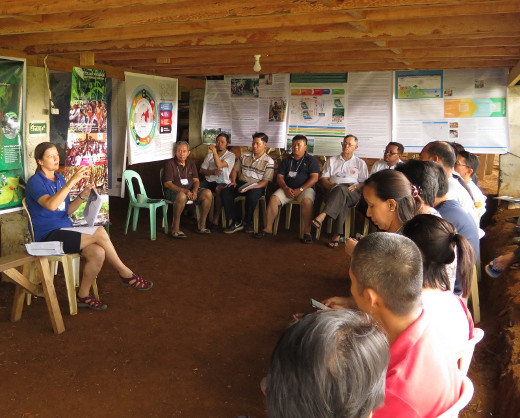
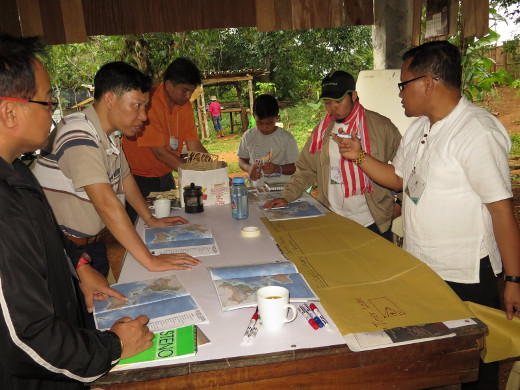
The modest venue allowed for hearty and practical discussions of challenges in constructing new buildings and common experiences of sharing designs with ecological accountability, as well as the importance of a green building code.
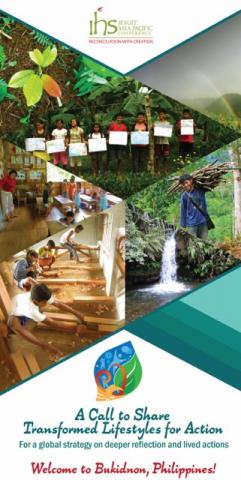
Sharing on apostolic action and youth inspired possible long-term engagements with the Sustainable Development Goals (SDGs) and the Intended Nationally Determined Contributions (INDCs) of COP21 Paris to integrate these global strategies more deeply in local apostolates and mission and at the margins.
Discussing concerns of science and society opened ways to become part of a global strategy of deep reflection and lived actions. It was acknowledged that even as people work with local apostolic commitments, there is a great need to be further informed of the breadth of ecological concerns. For example, even though there is limited involvement in advocacy for the oceans, overfishing was cited as an ecological challenge.
Nurturing a community of practice for reconciling with creation helps foster a more effective network for justice. If we can collaborate in Asia Pacific and people know what the different apostolates are doing even if the actions are small, then connecting with the global is workable. The active engagements from which the participants came were depicted in the JCAP map of ecological concerns, and they were asked to draw relationship lines from the more than 30 ecological concerns shown. The result was a visual representation of 60 action points that can be done together. Renewed life and mission is giving depth to ecological action.
The workshop is titled A Call to Share Transformed Lifestyles for Action and the participants acknowledged that this action has to come from within and that it is deep. The openness and willingness to commit as persons, not just as professionals, as job seekers, or as project implementers, was most striking and significant.
As JCAP President Mark Raper, SJ wrote in his welcome message, “Given the enormity of the environmental challenges, we know that what we can do may never be enough. Find motivation in the knowledge that all humanity is affected, most especially the poor… We have a base on which to build.”
Related story: Transforming lifestyles for greater social and environmental action



